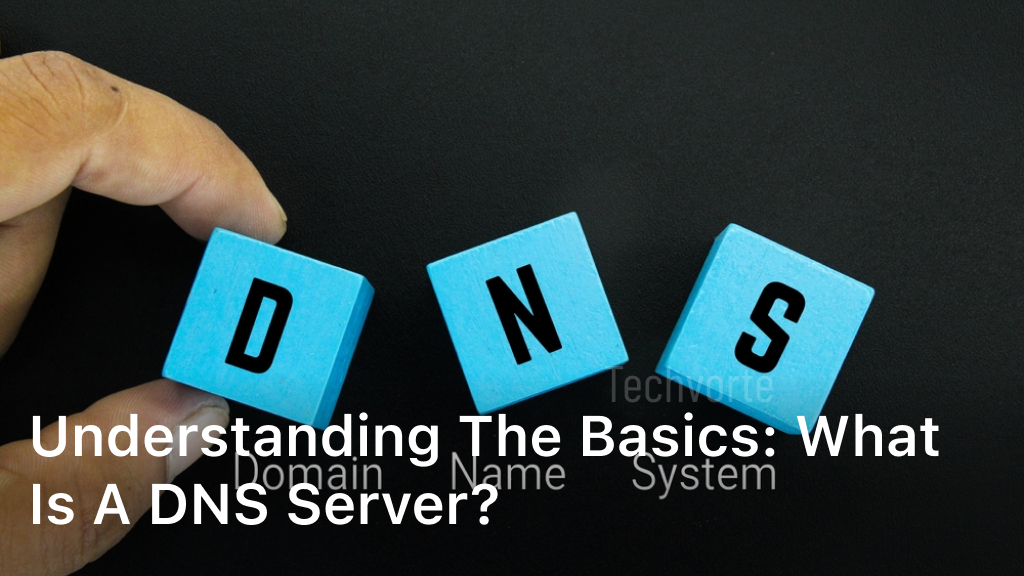Choosing a DNS server is like picking the perfect glasses. It’s about getting clear, fast and safe internet use.
We want to guide you through DNS server speed, security and privacy.
We’ll help you find a DNS provider that fits your values and needs.
Let us make it simple for you to take control of your online journey.
Understanding DNS
Choosing a DNS server starts with knowing what DNS is.
The Domain Name System (DNS) is a crucial part of the internet.
It changes user-friendly names into IP addresses that computers use.
This lets us visit websites with easy names instead of hard-to-remember numbers.
DNS makes the internet fast, accurate and easy to use.
When you type a website name in your browser, DNS is at work.
It translates the name to an IP so you can visit the site.
It also directs internet traffic to the right servers.
How DNS Works
When you enter a URL, your device asks a DNS server for the IP address.
Then, through a group of servers, the DNS query finds the needed info.
After getting the IP, your device connects to the website’s server.
DNS acts like a switchboard, linking your requests to the right web hosts.
This guide gives a basic understanding of DNS, its purpose and how it functions.
With this knowledge, we’ll explore how to pick the best DNS server for us.
Knowing DNS helps us choose the right server for our needs.
What DNS Server Should I Use

Choosing the right DNS server impacts your internet’s speed and safety.
Criteria for choosing a DNS server depends on your specific needs.
However, speed, security and privacy are key. Understanding these factors helps you pick the best DNS service.
Speed: Measuring DNS Response Times
A DNS server’s ability to quickly translate domain names into IP addresses is crucial.
You can test a server’s speed to see how fast it responds to your queries.
Quicker response times mean faster website access and smoother browsing.
- Look for DNS servers with low response times
- Close servers may offer better speed
- Test server speed during busy times
Security: Ensuring Safe Browsing with Secure DNS
In today’s world, secure DNS is more important than ever.
Secure DNS servers protect against phishing, malware and other threats.
They ensure the websites you visit are safe and keep your browsing secure.
- Choose DNS providers with strong security features like DNSSEC
- Check the provider’s security track record
- Find reviews on the provider’s security effectiveness
Privacy: DNS Providers and Your Data
Your DNS queries can tell a lot about you online.
This makes DNS privacy protection crucial.
Some servers keep logs that could expose your internet activity.
Choose ones that respect your privacy, keeping your DNS requests private and untracked.
- Review the privacy policies of DNS providers
- Look for providers that don’t log your data
- Prefer servers that encrypt your data to prevent spying
The Hunt for Speed: Best DNS Servers for Quick Connectivity
Every day, people want faster internet connections.
So, finding the fastest DNS servers is key for users around the world.
We will review DNS servers to see which ones are best at cutting down load times.
This can make your online experience smoother.
Let’s see which servers offer the speedy internet you are looking for.
Analyzing DNS Server Performance Review
We’re going to look closely at different DNS servers.
Our detailed reviews help us see how fast they respond to queries.
And we’ll see how this affects your internet speed.
These reviews help you pick DNS servers that are fast, steady and reliable.
Building a Secure Online Infrastructure: DNS Server Selection Guide
Choosing the right secure DNS servers is key for online safety.
With rising cyber threats, DNS security protects your data and network.
We’ll explore critical DNS security features needed in the digital age.
Our DNS server comparison looks at how various providers use DNS security protocols.
This helps you pick the best option for your online space.
DNS Security Features to Look For
Key security features protect against cyber attacks.
Here’s what to look for:
- DNSSEC (Domain Name System Security Extensions), This set of rules stops unauthorized DNS changes by verifying data is real.
- DNS over HTTPS (DoH), This puts DNS queries inside the HTTPS protocol, which keeps your online activities private and safe.
- DNS over TLS (DoT), Like DoH, it encrypts DNS queries but uses the TLS protocol for a more secure connection.
- IP-based Security, Some providers use IP restrictions to control who can access DNS servers.
Comparing the Security of Various DNS Servers
To pick a secure DNS server, it’s important to understand security differences between providers:
- Check independent reviews and user comments to see how secure a DNS server is.
- Look at how often the provider updates their security measures.
- Research how the provider handles security breaches and fixes problems.
A detailed DNS server comparison looks at more than just basic features.
It’s about finding a provider that really focuses on security.
Whether they use the latest DNS security protocols or quickly address threats, choose a platform that meets today’s digital security needs.
Respecting Your Privacy: DNS Server Recommendations that Protect
In our digital era, choosing a privacy-focused DNS server is crucial.
So, understanding DNS server privacy policies and DNS server encryption is vital.
This protects your personal info. Opting for servers focused on privacy helps keep your online identity secret.
- A DNS server that values your anonymity is key. Such servers don’t track your IP or web history.
- Begin by checking the DNS server privacy policies. These explain what data is taken and how it’s kept safe.
- End-to-end DNS server encryption is a must for keeping DNS queries secure. Look for DNS-over-HTTPS (DoH) and DNS-over-TLS (DoT) for top-notch encryption.
- Also, see if the server focuses on DNS server data protection. This means they work hard to prevent hacks and use strong security.
Combining these privacy and security steps keeps your online actions secret. It builds trust in the internet world.
Choosing DNS servers that focus on privacy means you care about keeping your data safe.
It also shows you support a future where the internet respects privacy deeply.
How to Choose a DNS Server: Paving the Path for Optimal Performance
Choosing the right DNS server combines knowledge with strategy.
We explain the selection process to make it easier.
It’s important to know how to pick and compare DNS servers.
This gives a complete picture of the options out there.
Step-by-Step Guide to DNS Server Selection
- Identify your performance criteria (speed, security, and privacy) to match your personal or organizational needs.
- Gather a comprehensive list of potential DNS server providers renowned for fulfilling these criteria.
- Conduct a performance analysis based on DNS response times and uptime records to evaluate reliability and speed.
- Review the security features offered by each DNS server, including DNSSEC support and the ability to resist phishing and cache poisoning attacks.
- Examine the privacy policies and practices of each provider, giving preference to those that adopt no-logs policies and provide encryption.
- Utilize customer reviews and expert opinions to gauge the reputation and service quality of the DNS providers.
- Consider the geographic distribution of the DNS servers to ensure they match your location for the best performance.
- Test the DNS servers by making temporary changes to your network settings, noting improvements or concerns in connectivity.
- Make your final decision by weighing the pros and cons of each option, keeping alignment with your predefined criteria.
Compare DNS Servers: Tools and Techniques
- Use online platforms that provide real-time DNS speed comparison data to assess server performance.
- Implement DNS benchmarking software designed to test and compare the response times of different DNS servers.
- Look for online forums and tech communities where users share their experiences and performance results of various DNS services.
- Explore the use of network diagnostic tools that help uncover the efficiency and reliability of DNS resolution paths.
- Check for comprehensive reviews by cyber security researchers that analyze and benchmark DNS server security features.
Choosing the best DNS server shouldn’t be hard.
Following these steps and using tools for comparison helps a lot.
You can confidently pick a server that meets today’s digital demands.
Conclusion
We’ve gone through the world of DNS servers, focusing on what makes them fast, secure and private.
Choosing the right DNS server means finding one that fits your online needs perfectly.
It’s all about knowing what each one offers and picking the best match for you.
Now, picking a DNS provider should seem easier and more like an informed choice.
You know how shortened DNS query times speed up browsing.
You understand the value of strong security features that fend off online threats.
And you appreciate privacy policies that protect your information.
With this knowledge, you’re ready to choose a provider that meets your demands.
Think of this guide as your first step to a better online experience with your chosen DNS provider.
You’re at the point where choosing a DNS server means forming a strong partnership.
This will make your internet use safer and more enjoyable.
With a good balance of speed, security and privacy, you’re set to improve how you connect online.
FAQ
What is DNS and how does it work?
DNS stands for Domain Name System. It changes domain names into IP addresses that computers use. This lets computers talk to each other smoothly.
What criteria should I consider when choosing a DNS server?
Look for speed, security, and privacy in a DNS server. Check DNS response times for speed. Secure browsing and privacy policies matter too.
How can I measure DNS response times to assess speed?
Use online tools for testing DNS speed. They do DNS lookups and time them. This helps you find the fastest DNS server.
What is secure DNS, and why is it important?
Secure DNS adds extra security, like DNSSEC and DoH. It fights spoofing and data collection. Secure DNS makes your online activities safer.
How can I ensure my privacy when using a DNS server?
Pick a DNS with strong privacy and encryption, like DoH or DNSCrypt. They keep your browsing data safe from prying eyes.
Which DNS servers are known for their speed and performance?
Fast DNS servers include Google Public DNS, Cloudflare DNS, and OpenDNS. They have great systems for quick and reliable DNS resolution.
What are the most reliable DNS servers?
For reliability, try Google Public DNS, Cloudflare DNS, and Quad9 DNS. They’re known for consistent performance and uptime.
What security features should I look for when choosing a DNS server?
Look for DNSSEC, DoH, and protection against malware/phishing. These features keep you safe from DNS attacks and ensure secure browsing.
How can I compare different DNS servers to make an informed choice?
Compare DNS servers with online tools, reviews, and rankings. Also, look at user feedback and features to decide.
What is the importance of selecting the right DNS server?
The right DNS server improves your internet speed and experience. It should be fast, reliable, and focused on security and privacy.





